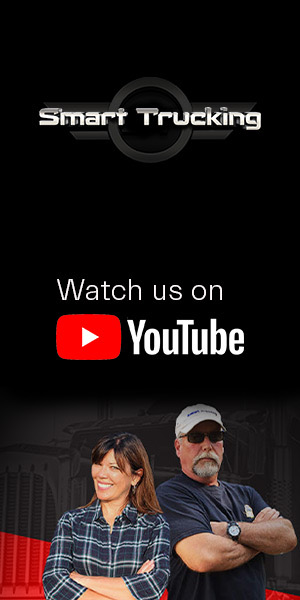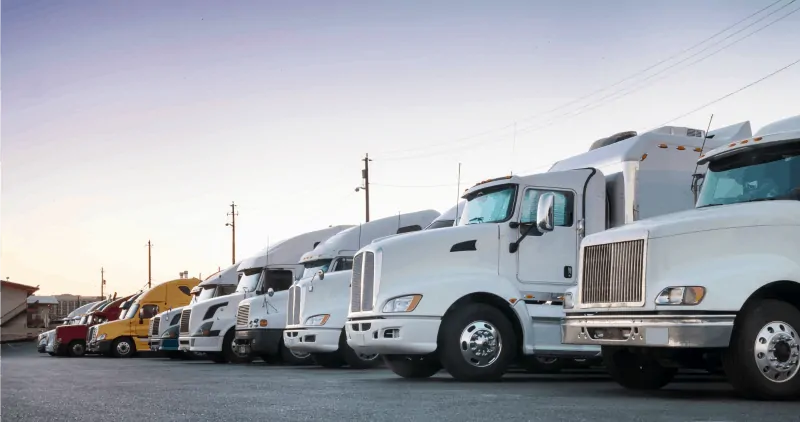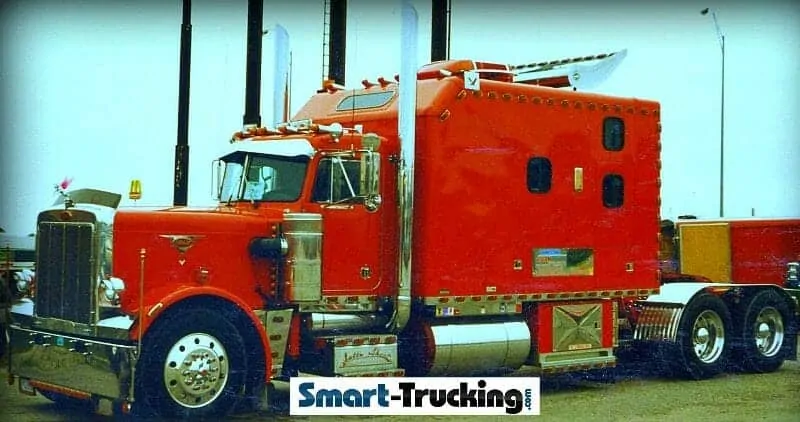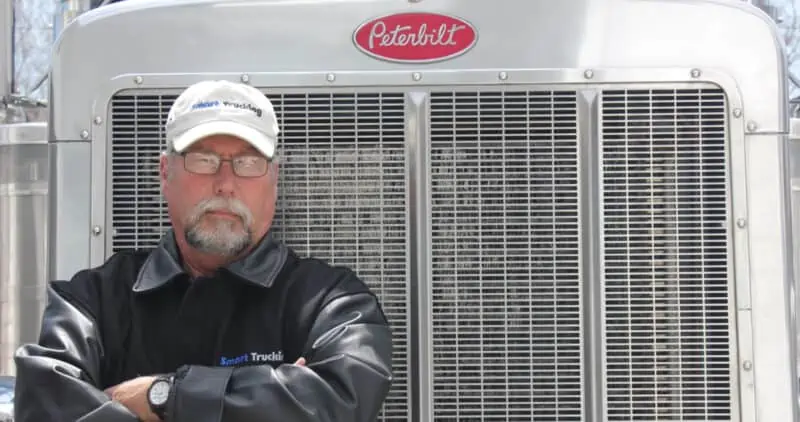Consider job hopping as a truck driver? Explore why it happens, its impact, and when you should make a switch in this guide.
What Is Job Hopping?
Picture this: You get a job with a trucking company, thinking it’ll be your ticket to road-warrior bliss.
But 6-8 weeks in, you find it’s just not cutting it, and you’re back scrolling through job listings, hungry for something better.
Before you know it, your trucker’s resume is a patchwork quilt—six jobs stitched together over the span of a year.
That’s textbook job hopping in the trucking industry.
It’s a scenario that plays out for many professional truck drivers.
So What’s the Big Deal With Job Hopping As a Truck Driver?
Let’s lay it out straight.
For some trucking companies, your job-swapping history won’t raise an eyebrow.
But—and it’s a big but.
There are companies out there that will give your resume the stink eye when they see this ‘job hopping’ pattern.
You might be eyeing a seat with a top-notch company. You know, the kind you’ve daydreamed about since becoming a truck driver.
So you apply.
When they give your work history a once-over and see a serial job hopper, alarms go off.
They tag you as unpredictable, hesitant to commit—flaky, even.
And just like that, the door slams shut on what could have been your dream driving job.
Why Is Job Hopping So Common in the Trucking Industry?
You’re behind the wheel again, clocking mile after mile, and you start to wonder why so many of your fellow truckers are changing jobs. They seem to get away with it.
So you start to hunt for a trucking company that treats you like more than just another number.
You’re looking for decent pay, respect, and equipment that won’t fall apart before you hit the next state line.
It’s a balancing act between staying loyal and jumping ship to better conditions.
So when drivers you know cash in their chips for a new gig, it’s often because they’re not willing to settle for less than they deserve — and neither should you.
How Much Job Hopping Is Too Much?
You’ve been switching truck driving jobs like a radio station, but have you pondered the impact on your work life down the line?
Too frequent job changes might scar your resume with red flags – employers may consider you unreliable or flaky and hesitate to invest in you.
And let’s not overlook the gritty reality: sometimes, the more you hop, the more likely you are to land in a spot that short-changes you on pay or working conditions.
Think of it this way: each new CDL job is a fresh relationship, and trust needs time to set.
Hopping behind the wheel at a different company too often can erode that trust.
It can also sever the accumulation of perks that come with longevity, like fringe benefits and seniority.
Moreover, continuity can enrich your reputation and elevate your stance for higher pay or preferred routes.
Remember, longevity can paint you as a seasoned road warrior who’s battle-tested and trustworthy, while a patchwork of short stints can leave you looking like you bail when the going gets tough.
So, aim for the right balance – enough stays to show you’re steady at the wheel, but strategic switches that signal you’re driving your truck driving career forward, not just drifting from through life aimlessly.
Reasons Truck Drivers Change Jobs
- Burnout warning signs: fatigue, irritability, decreased performance (DriveWyze highlights many of the factors that lead to driver burnout)
- Lack of recognition and respect from the trucking company
- Poor communication between drivers and dispatch
- Discovering company dishonesty after being onboard for a while, like not being paid fairly
- Driving poorly maintained equipment poses safety risks and affects earnings
You know the feeling – every mile starts to look the same, every load feels heavier, and the cab of your truck grows more cramped by the day.
It’s not long before burnout creeps in, whispering that it’s time to change lanes in your career.
You’re not alone in this; many truckers find themselves toeing the line, deciding whether to push through or park at a new company.
You clock in endless hours and tackle back-to-back runs, and yet, respect from the company seems like a ghost on the highway – heard about but never seen.
It’s grueling and, without a doubt, can make you want to hang up your keys for good.
Maybe you find out the company you signed on with is flakier than a truck stop pie?
And for you, that’s often the last straw.
Add to that the safety concerns of handling poorly maintained equipment, and it’s no wonder so many truck drivers are scanning the job listings, ready for the next off-ramp to a better gig.
How Switching Jobs Too Much Can Bite You in the Ass
Jumping from one truck driving job to another might seem like a good strategy to stay fresh and keep those paychecks climbing.
But here’s the catch: if you make moves too often, you might start to look flaky.
Think about it. Your reputation is on the line.
Prospective employers might glance at your resume and worry that you’ll bail on them just as quick.
They’re looking for someone who will stick around, see things through, and not just chase the next big paycheck or promise of home time.
Your professional network matters, too. Each job you take is a chance to build relationships and trust.
If you hop too often, you miss out on deepening those connections that can lead to even better opportunities down the road.
And let’s not forget about your own growth. Staying put for a while lets you learn the ins and outs of a company, which is where real expertise and skills come into play.
Don’t get me wrong, moving on when the time’s right is smart, but be strategic about it.
Aim for that balance where you can show loyalty and experience along with your range of driving skills.
That’s how you build a career that can withstand the twists and turns of the trucking industry.
How To Know When It’s REALLY Time To Make a Switch
You’ve been on the road awhile, and you’re mulling over a switch.
Maybe the grind’s gotten to you, or that shiny new offer is tempting.
Before you leap to a new gig, pause and ask yourself some hard questions: “Is this move going to boost your driving career, or are you just dodging temporary discomfort?“
Consider your goals.
If you’re eyeing a chance to step up in terms of pay or position, it could be a solid move.
Long-term prospects matter, too.
Is the new company offering growth opportunities you can’t get where you are now?
Now, think about your well-being.
If your current job’s eating away at your happiness or health, it might be time to say goodbye.
But, if the issues at hand are fixable, try communicating your concerns first. You might just turn things around without having to hit the road.
Last of all, weigh the logistics.
Check the reputation of the new place. Talk to other drivers.
Remember, a little homework now can save you a mess of trouble later on!
Related > The Best Trucking Companies in the U.S. to Work
5 Tips To Help Avoid the Urge to Job Hop
You know the feeling, you’re sitting behind the wheel, and the thought crosses your mind, “Maybe it’s time for a new gig.”
Before you take that exit ramp to another job, consider these strategies to keep that urge to hop in check.
Research Before You Leap
Before switching gigs, do some digging.
Check out reviews online, talk to other drivers, and scope out the company culture. Make sure the grass really is greener on the other side.
Set Goals and Stick to Them
Figure out what you want from your career and set some solid goals.
Whether it’s better pay, more time at home, or exploring new routes, having clear objectives can help you stay focused and committed to your current job.
Communicate with Your Employer
If something’s bugging you at work, don’t just stew in silence.
Talk to your boss or HR department about any issues you’re facing.
Sometimes a simple conversation can lead to positive changes that make you happier on the job.
Focus on the Positives
Every job has its ups and downs.
Instead of dwelling on the negatives, try to focus on the things you enjoy about your current position.
Whether it’s the camaraderie with your fellow drivers, the flexibility in your schedule, or the scenic views on your route, find the silver linings that keep you going.
Give It Time
Rome wasn’t built in a day, and neither is a satisfying career.
If you’re feeling antsy, give yourself some time to settle into your role.
It takes time to build relationships, get comfortable with new routes, and adjust to company policies.
Rushing into a new job might not solve your problems—it might just create new ones.













